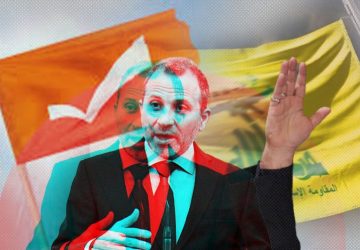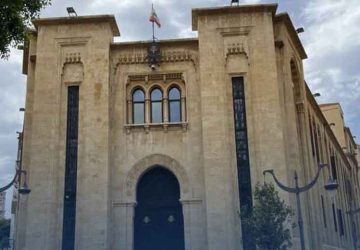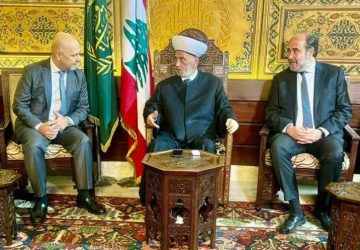The Lebanese Forces (LF) and the Free Patriotic Movement (FPM) both called, on Saturday, on private and public schools and technical institutes not to register Syrian migrants in an irregular situation for the academic year 2024-2025.
The controversy surrounding this case comes a day after the Ministry of Education issued a circular authorizing schools to accept Syrian schoolchildren, including those in an irregular situation, i.e., without a legal residence permit or even a card issued by the United Nations High Commissioner for Refugees (UNHCR).
The leaders of the LF, Samir Geagea, and the FPM, Gebran Bassil, called on caretaker Prime Minister Najib Mikati, Parliament Speaker Nabih Berri and caretaker Minister of Education Abbas Halabi to reverse their decision and cancel the circular.
“This circular violates all Lebanese laws, as well as the agreement concluded between Lebanon and the UNHCR in 2003,” protested Geagea. “It is an invitation to Syrians who are illegally on Lebanese territory to remain there,” he said, adding that “it is Lebanon and its citizens who are paying the price.”
In this context, Geagea denounced the actions of Hezbollah (without naming the party), which is “imposing itself alongside the Lebanese army as a military force, appropriating decisions on war and peace in Lebanon, violating the Lebanese Constitution, particularly with regard to the presidential election, considering the borders between Lebanon and Syria to be non-existent and today giving the green light to Syrians in an illegal situation to have access to the Lebanese education system.”
For his part, the head of the FPM said he was “surprised” by the decision of the Council of Ministers and the circular issued by the Ministry of Education, considering it to be “a step taken by a resigned government and not countersigned by all the ministers.” According to him, this decision is “a violation of the 1962 law regulating the entry and stay of foreigners in Lebanon, as well as their exit from the country,” and that “it would have been out of place in the presence of a president.” Bassil called on everyone to “act to prevent the implementation of this decision,” indicating that a meeting of the FPM’s political council would be held on Tuesday to decide on the maneuvers to be undertaken in this context.
Warning against the “existential danger” facing the Lebanese and the country, but also against an “international conspiracy and local inertia,” Bassil felt that “the time has come to sound the alarm” and that “the confrontation against the threat of naturalization (of Syrians, editor’s note) must be done in deeds and not in words.”
The Ministry of Education Reacts
In response to the controversy sparked by this decision, the Ministry of Education hastened to issue a press release in which it clarifies that the measure decided by the Council of Ministers, which allows “Syrian students who have passed the official exams to receive their diplomas, in no way facilitates their residence in Lebanon.” According to the statement, “The educational path of displaced Syrians is distinct from that of Lebanese students, who are in no way affected.” The Ministry also recalled that it “follows the educational policy decided by the government concerning Syrian students,” and that it “forwards to General Security the full name and available documents of any candidate among the displaced Syrians who has passed the official tests, so that a follow-up can be carried out in the procedure for granting a residence permit.” The Ministry’s press release concluded that “the decision of the Council of Ministers prohibits, for the year 2025-2026, the enrollment of any Syrian student without legal residence.”
The PSP’s position
The Progressive Socialist Party (PSP), for its part, rejected the campaign waged against the Ministry of Education for its decision to allow Syrian students in an irregular situation to enroll for the 2024-2025 academic year. In a statement, it said that this decision would prevent Syrian children from drifting into ignorance, extremism, violence and crime, “while the campaign against it reflects racism and short-sightedness in approaching a delicate strategic issue that will have serious social repercussions for Lebanon in the near future”.





